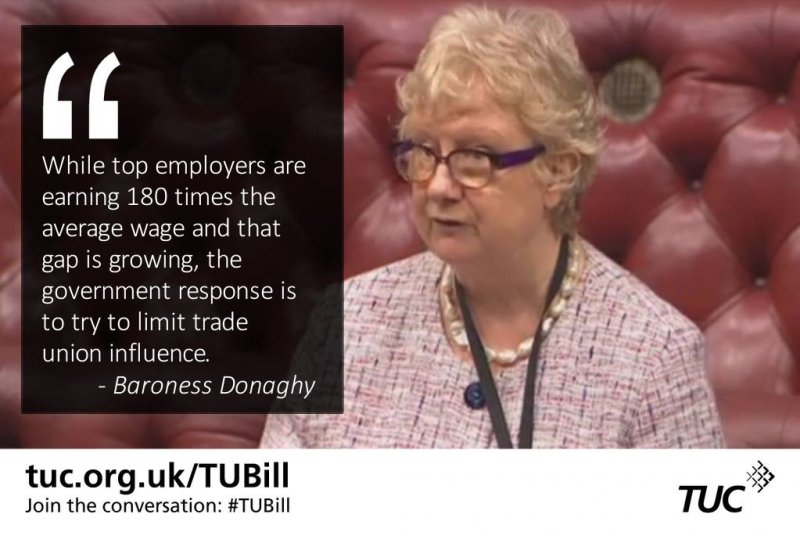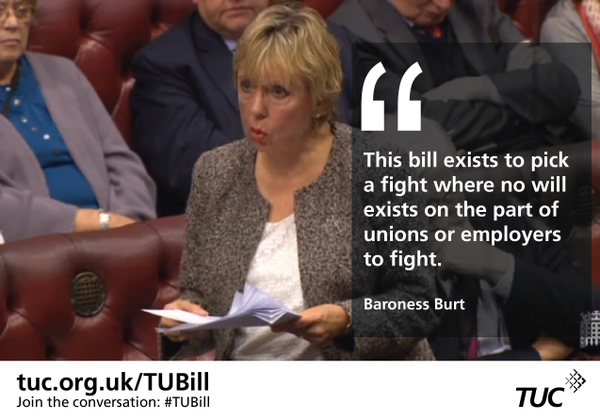Submitted by SWFBU on

A CIRCULAR TO ALL FBU MEMBERS FROM GENERAL SECRETARY MATT WRACK
Dear Brother/Sister
Trade Union Bill - Government setbacks in the House of Lords
As you will recall, the Trade Union Bill is a major attack on the rights of working people. The FBU has been campaigning against the proposed legislation alongside the TUC/STUC and other unions. The Bill has recently been considered by a committee established by the House of Lords and during this process the government has been subject to serious criticism and has suffered a number of setbacks on aspects of the proposals. These are set out below.
E Ballots
The first successful amendment to the Trade Union Bill introduced by Lord Kerslake (Cross-Bencher) was a clause requiring the Secretary of State to commission an independent review on electronic balloting for strike action, and to present before each House of Parliament a strategy for the introduction of electronic balloting.
The vote was 320 to 181 – a majority of 139.
Political Funds
The second amendment introduced by Lord Burns was a clause providing that trade unions with political funds ask new members upon joining whether they wish to contribute to the political fund, and a number of measures to reduce the burdens on unions such as extending the transition period from 3 to 12 months, removing the 5 year renewal obligation and allowing use of communications other than postal.
The vote was 320 to 172 – a majority of 148.
Facility Time Cap
Finally, the third amendment introduced by Baroness Hayter removed a clause conferring the Secretary of State reserved powers to cap facility time arrangements for trade union officials in public sector bodies.
The vote was 248 to 160 – a majority of 88.
It is important to note that these Lords' amendments do not mean that the government will amend the Bill.
The next stage for this Bill is the second day of the report stage, again in the House of Lords, on 19 April, when the government response to the debate and those amendments agreed by the House of Lords should become known. The government may simply continue with proposals unchanged and in any case the other aspects of the Bill still represent a huge attack on the trade union rights of working people. Nevertheless, these debates highlight the weakness of the government’s argument and will give a boost to the campaign of opposition. Further information will be issued as this progresses.
Best wishes.
Yours fraternally,
MATT WRACK
General Secretary



